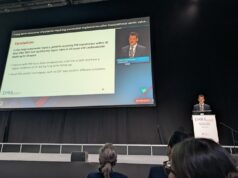
BioTrace Medical has received FDA 510(k) clearance for its Tempo Lead, which a press release describes as an innovative temporary pacing lead that has been designed for use in procedures in which temporary pacing is indicated, including transcatheter aortic valve implantation (TAVI) and electrophysiology procedures.
Temporary leads are used in more than 350,000 procedures each year, a number that is growing rapidly as the population ages and TAVI becomes increasingly common. The temporary pacing lead, a small catheter with two electrodes, is placed in the right ventricle of the heart through a vein in the groin or neck. The lead is then connected to an external pacemaker allowing a physician to monitor and control a patient’s heart rate for up to several days.
According to the press release, the design of conventional temporary pacing leads can cause serious complications. Current temporary leads can be easily dislodged from the heart, which may result in loss of pacing, with serious consequences for the patient. As a result, patients are often limited to bed rest for the duration of temporary pacing lead placement—delaying ambulation and thereby increasing length of stay in costly hospital units such as intensive care. Additionally, current leads risk perforation of the heart wall, which may lead to pericardial effusion and tamponade, in which blood from within the heart escapes into the sac surrounding the heart, leading to potentially life-threatening cardiac compression.
Susheel Kodali, director of the Heart Valve Program at the Center for Interventional Vascular Therapy at Columbia University Medical Center in New York (USA), comments: “The Tempo Lead represents the first major advance in temporary pacing since the technology was introduced decades ago. As a critical component of every TAVI procedure, temporary leads are integral to successful clinical outcomes for patients. I am excited about the potential of this technology and look forward to using it in my practice.”
Results of the first-in-human study of the technology will be presented at the 2016 Transcatheter Cardiac Therapeutics (TCT) meeting (29 October–2 November, Washington, DC, USA).









